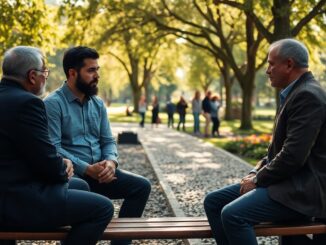A new vaccine advisory panel led by Robert F. Kennedy Jr. sparks outrage with its controversial members.

Topics covered
In a stunning move, Robert F. Kennedy Jr. has assembled a new vaccine advisory panel, just two days after the US health secretary dismissed all 17 members of the Advisory Committee on Immunization Practices (ACIP). This decision has ignited heated discussions and raised serious concerns among health experts.
Controversial appointments
Among the eight new members, several have openly criticized vaccination efforts. Notably, Dr. Robert Malone, who has made alarming claims about the potential dangers of COVID-19 vaccines, stands out as the most contentious selection. He controversially asserts that these vaccines could harm children’s brains, hearts, and immune systems.
Dr. Malone’s previous declarations about mass vaccination programs being linked to a phenomenon he calls “mass formation psychosis” have drawn ire from the medical community. He controversially equates this term to psychological manipulation akin to the tactics used during the Holocaust, raising eyebrows and questions about his credibility.
Background of the panel members
Another notable figure is Dr. Martin Kulldorff, a former Harvard Medical School professor known for his role in the Great Barrington Declaration, which opposed widespread lockdowns during the pandemic. Critics labeled this declaration as dangerous and anti-scientific. Kulldorff was dismissed from his academic position in 2024, further complicating his reputation.
The panel also includes Joseph Hibbeln, Retsef Levi, Cody Meissner, James Pagano, Vicky Pebsworth, and Michael Rossm, four of whom have ties to the CDC or FDA. Kennedy claims that all these individuals are dedicated to evidence-based medicine. Yet, the suddenness of their appointments raises questions about the vetting process.
The appointment process in question
Typically, joining a federal advisory panel is no easy feat. Dr. Noel Brewer, a public health professor, explained that it usually requires an extensive application process, often lasting over a year. Applicants write essays, fill out numerous forms, and undergo ethics training, making the speed of these appointments appear suspicious.
The newly formed panel is slated to attend a crucial CDC meeting on June 25, where they will discuss and vote on vaccine recommendations for a range of diseases, including flu and COVID-19 boosters. This meeting could have significant implications for public health policies moving forward.
Expert opinions on the ramifications
Vaccine expert Dr. Peter Hotez has voiced serious concerns, labeling Kennedy’s agenda as pseudoscientific. He argues that it caters to a corrupt wellness industry that profits from misinformation about health. Such perspectives highlight a growing divide in public health discourse, with many advocates for vaccines fearing the repercussions of these controversial appointments.
This situation leaves many unanswered questions. How will this new panel influence public perception of vaccines? What impact will their recommendations have on the ongoing battle against vaccine misinformation? As the upcoming CDC meeting approaches, the pressure continues to mount.




